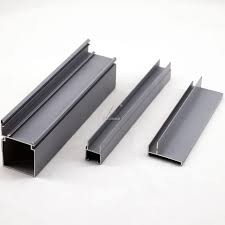The Advantages of Industrial Aluminum Profiles in Modern Manufacturing
2025-05-14
As industries evolve toward smarter, cleaner, and more flexible systems, the demand for versatile materials has increased. Industrial aluminum profiles have emerged as a key solution, offering a combination of strength, adaptability, and sustainability.

Top Advantages of Industrial Aluminum Profiles
1. Modular Design for Custom Structures
Aluminum profiles are designed for quick assembly using connectors, brackets, and accessories. This modularity allows manufacturers to create custom solutions without welding or complex fabrication.
2. High Strength-to-Weight Ratio
Aluminum offers the strength needed for structural applications while remaining light, which is crucial for sectors like aerospace and robotics.
3. Corrosion Resistance
With natural oxidation and the option for surface treatments like anodizing, aluminum profiles withstand harsh environments, reducing maintenance needs.
4. Excellent Machinability
These profiles can be cut, drilled, tapped, and machined easily using standard tools. This lowers production costs and speeds up prototyping.
5. Aesthetic Appeal
With clean lines and multiple surface finishes, aluminum profiles are not only functional but also visually appealing—ideal for use in commercial and architectural projects.
6. Eco-Friendly Material
Aluminum is 100% recyclable without loss of properties. Using recycled aluminum in manufacturing reduces energy consumption and supports green initiatives.
Industry Relevance
From factories and laboratories to retail spaces and renewable energy projects, industrial aluminum profiles are everywhere. They help manufacturers adapt quickly to changing demands, reduce costs, and improve product performance.
Conclusion
Industrial aluminum profiles are a cornerstone of modern, flexible engineering. Their blend of strength, workability, and environmental benefits makes them the material of choice for forward-thinking industries. As customization and efficiency become more important, the role of aluminum profiles will only continue to grow.


